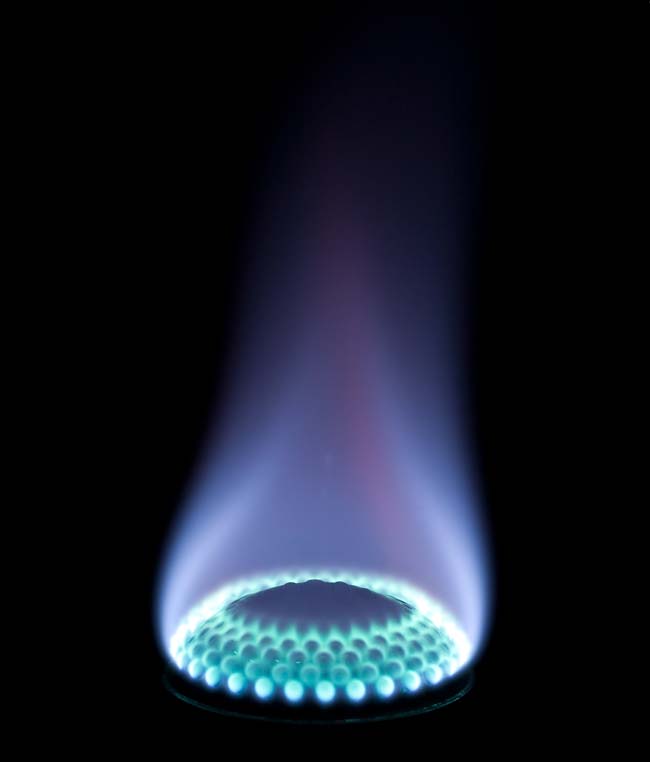Smell: To help consumers detect natural gas leaks, an odorant (mercaptan) is added to the natural gas carried by distribution lines. This odorant gives natural gas a smell like rotten eggs.
Sight: Blowing dirt, fire coming from ground, dry or frozen spots, dead vegetation within a green area or water bubbling in a pond or creek.
Hear: Listen for a hissing, blowing or roaring sound.
Look for the blue flame. If the pilot lights & burners have a steady blue flame, they are operating correctly. (Decorative gas fire logs are the only exception. Their flame is usually yellow.)
Have all gas appliances, furnaces, vents, flues, chimneys and gas lines in your home or business inspected every year or two by qualified industry professionals.
Keep the areas around all appliances and equipment clean and unblocked to allow for proper air flow.
Do not move or install a gas appliance, connector or heater without professional assistance or unless you are a qualified contractor!

Natural Gas is colorless, tasteless, odorless and lighter than air. It is extremely flammable and easily ignited by heat, sparks or flames.
It may be quite surprising, but damage to buried utility lines can occur when doing typical home improvement projects such as putting up a fence, mailbox post, swing set or clothesline pole; building a deck or room addition; planting a garden, trees or shrubbery. If you are beginning a home improvement project that requires digging or adjusting the grade of your property, call Alabama 811 before beginning your work.
Alabama law requires that you give two working days notice (48 business hours) to Alabama 811 before your digging begins.
Whether you are a contractor, home or property owner, builder, landscape service, pool or fence contractor, or anyone digging into the ground surface, Alabama’s damage prevention legislation requires you to call before you dig.